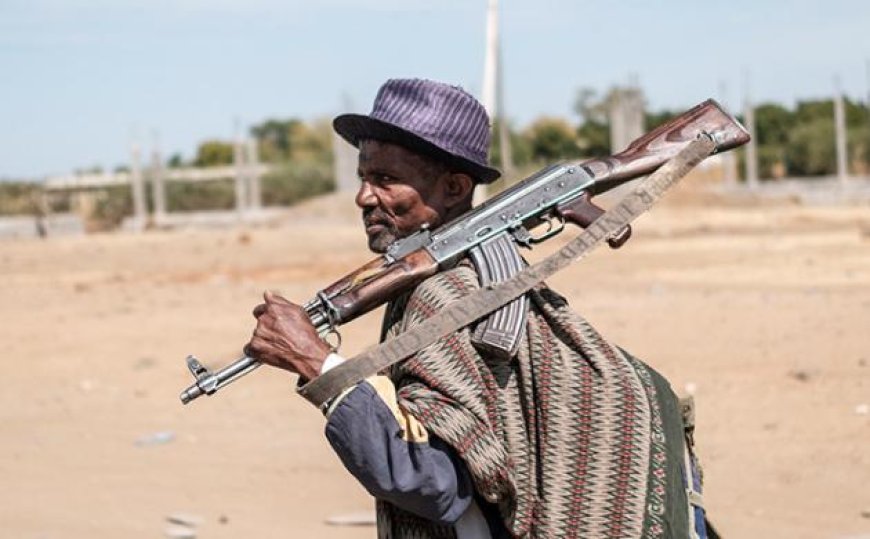Sudan Faces Growing Risk of Balkanization Amid Persistent Internal Conflicts and Political Instability
Sudan faces a rising risk of balkanization in 2025 amid ongoing conflicts and political instability, threatening the country’s unity and regional stability.

Sudan, a nation long plagued by internal strife and political upheaval, stands at a precarious crossroads as analysts increasingly warn of the risk of balkanization — the fragmentation of the country into smaller, often hostile, regions. The ongoing conflicts, compounded by governance challenges and ethnic divisions, threaten to unravel Sudan’s fragile unity, potentially reshaping the political and geographic landscape of Northeast Africa.
This article explores the root causes of Sudan’s instability, the risks posed by balkanization, and the international community’s response to what experts describe as a growing crisis with far-reaching implications.
Historical Context: Sudan’s Fragile Unity
Sudan’s history is marked by periods of violent conflict and political fragmentation. The country endured two protracted civil wars between the north and south, culminating in the independence of South Sudan in 2011. However, the secession did not resolve the underlying ethnic, regional, and political tensions that continue to afflict the remaining Sudanese territory.
The Darfur conflict in the early 2000s, insurgencies in the Blue Nile and South Kordofan regions, and ongoing clashes between tribal groups have continuously strained the nation’s cohesion.
Current Conflicts Driving Fragmentation Risks
In 2025, Sudan faces multiple layers of conflict:
-
Political Instability: The transitional government established after the 2019 revolution struggles to maintain authority amid military influence and factional rivalries.
-
Ethnic and Regional Violence: Clashes between Arab and non-Arab groups, as well as localized tribal conflicts, intensify in regions such as Darfur and the Nuba Mountains.
-
Economic Collapse: Severe economic hardships exacerbate social tensions, leading to protests and violent outbreaks.
-
Militia and Rebel Activity: Armed groups control significant territories, challenging the central government’s sovereignty.
These dynamics create an environment where central control weakens, and regional powers assert autonomy, raising fears of the country fragmenting along ethnic or regional lines.
Understanding Balkanization in the Sudanese Context
Balkanization refers to the division of a region or state into smaller, often ethnically based, entities that may conflict with one another. Originally coined to describe the fragmentation of the Balkan Peninsula, the term is now applied to similar processes globally.
In Sudan’s case, balkanization would involve:
-
Emergence of Semi-Autonomous Regions: Areas such as Darfur, Eastern Sudan, and parts of Kordofan could declare de facto independence or increased autonomy.
-
Weakening of Central Government: The federal government’s capacity to enforce laws and provide services deteriorates.
-
Potential for New Conflicts: Fragmentation risks sparking fresh disputes over borders, resources, and governance.
Such an outcome would not only destabilize Sudan but also have broader regional consequences, affecting neighbors and international stakeholders.
Drivers Behind Sudan’s Fragmentation Risk
Several factors underpin Sudan’s vulnerability to balkanization:
-
Ethnic and Cultural Diversity: Sudan is home to over 500 ethnic groups and numerous languages, many of which have longstanding grievances related to political marginalization and resource allocation.
-
Weak State Institutions: Decades of authoritarian rule and conflict have eroded public trust and the effectiveness of governance structures.
-
Economic Hardship: Hyperinflation, food insecurity, and lack of infrastructure deepen societal fractures.
-
Proliferation of Armed Groups: Militias and rebel factions hold sway in many regions, complicating peace efforts.
-
External Influence: Regional powers such as Egypt, Ethiopia, and Gulf states pursue competing interests in Sudan, sometimes exacerbating divisions.
Recent Developments and Escalations
The first half of 2025 saw several flashpoints:
-
Renewed fighting in Darfur between rival tribal militias displaced tens of thousands.
-
Clashes between government forces and rebel groups in South Kordofan intensified.
-
Political deadlock in Khartoum hindered implementation of a unified peace plan.
-
Reports emerged of regional leaders pushing for greater autonomy or independence.
These events have alarmed analysts who caution that without urgent intervention, Sudan could mirror other cases of state fragmentation with prolonged instability.
International Response and Mediation Efforts
The international community remains deeply engaged in Sudan:
-
United Nations: The UN Integrated Transition Assistance Mission in Sudan (UNITAMS) supports peacebuilding, humanitarian aid, and political dialogue.
-
African Union: AU-led mediation efforts focus on conflict resolution and stabilizing governance.
-
Neighboring Countries: Egypt, Ethiopia, and others play roles both as mediators and influencers.
-
Western Governments: The U.S. and European Union provide diplomatic pressure and aid, emphasizing peace and democratic transition.
Despite these efforts, the complexity of Sudan’s conflicts requires sustained and coordinated action to prevent fragmentation.
Potential Consequences of Balkanization
The fragmentation of Sudan would have profound implications:
-
Humanitarian Crisis: Increased displacement, food insecurity, and access challenges for aid.
-
Regional Instability: Spillover of conflict into neighboring countries, threatening security.
-
Economic Disruption: Loss of cohesive markets and infrastructure, hindering development.
-
Geopolitical Realignment: New political entities could alter alliances and power balances in Northeast Africa.
Expert Opinions
Dr. Ahmed El-Tayeb, a Sudanese political analyst, stated, “Sudan’s risk of balkanization is real and growing. The failure to address root causes—ethnic marginalization, weak governance, economic despair—creates a vacuum that fragmentation would exploit.”
He added, “International partners must support inclusive dialogue that embraces Sudan’s diversity and fosters national unity rather than division.”
Paths Forward: Preventing Fragmentation
Experts suggest several strategies to mitigate balkanization risks:
-
Inclusive Political Dialogue: Engaging all ethnic and regional groups in governance discussions.
-
Strengthening Institutions: Building capable, transparent, and accountable state structures.
-
Economic Reforms: Addressing inflation, unemployment, and infrastructure deficits.
-
Security Sector Reform: Integrating armed groups and enhancing civilian oversight.
-
International Support: Coordinated diplomatic and humanitarian aid aligned with Sudan’s priorities.
Only a concerted, multifaceted approach can offer hope for Sudan’s stability and unity.
Conclusion
Sudan’s ongoing internal conflicts and political instability place it at a critical risk of balkanization, threatening the country’s territorial integrity and regional security. The international community, alongside Sudanese leaders and civil society, faces an urgent imperative to promote peace, reconciliation, and reform.
As the world watches closely, the coming months will be decisive in determining whether Sudan can overcome its divisions or succumb to fragmentation, altering the geopolitical map of Northeast Africa.











